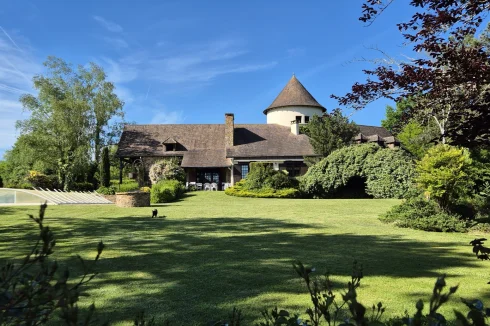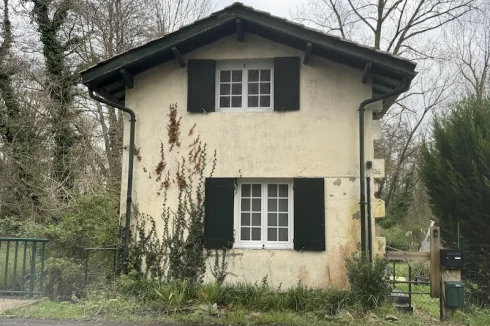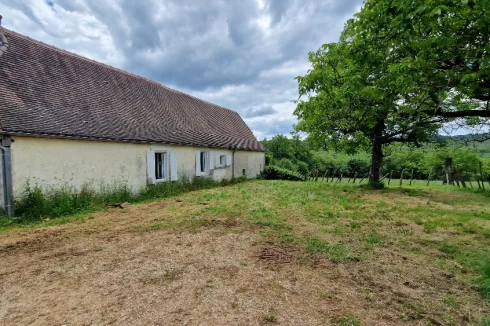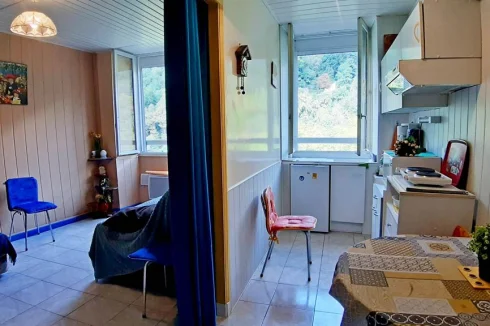Investing in Assurance Vie in France
Wednesday 03 September 2014
Assurance vie is a potentially interesting investment product for expatriates retiring to France, but one that will not suit everyone.
For those fortunate enough in these difficult times to have savings to invest there are no easy investment options.
Bank savings rates are negligible, the stock market is volatile and risky, and although gilts may be theoretically risk free, their returns have also dramatically fallen in recent years.
However, for most of us these products will continue to be the main forms of savings and investments we will use.
In France, once French savers have deposited all they can in the tax free bank savings schemes, most then turn to assurance vie for the balance of any remaining funds they wish to invest. Millions of investors hold one or more assurance vie contracts.
Contrary to the impression given by the nomenclature, assurance vie is not primarily about life insurance on death but is an investment product for the living.
The policies are run by banks and insurance companies, with your investment either placed in mutual funds containing corporate and government bonds (French and international), or shares. These contracts are called fonds en euros (or mono-supports). More often than not it is a mixture of the two, called multi-support contracts.
In some cases the contracts can be opened with as little as a few hundred euros, to which further deposits maybe added. In most cases, however, a capital sum is invested, either to build up a nest-egg for retirement or inheritance or to obtain a complementary source of income.
In recent years average returns on the no risk contracts invested in bonds (fonds en euros) have fallen below 3%, where once they offered upwards of 4% pa.
Despite the lower returns, assurance vie does have three great attractions; first that the capital is not blocked; secondly, that it benefits from a privileged tax status; thirdly, funds deposited in fonds en euros are also guaranteed, as is the return.
In addition, although average returns have fallen, this hides a wide disparity in the level of returns, with some contracts still offering upwards of 3%.
However, for expatriates who may be entering retirement age these advantages have their limits, because although the capital is available for drawdown, the real tax break only kicks in 8 years after the start of the contract.
At this point a couple are then entitled to a tax free allowance on gains of €9,200 for a couple (€4,600 for a single person). So, for example, after 8 years, an annual withdrawal of, say, €50,000 could be made by a couple free of tax, provided that the gain element of the withdrawal did not exceed €9,200.
Before 8 years, and beyond these allowances, the gain element of any withdrawals are subject to income tax, either on the basis of your marginal tax band, or a fixed rate.
The lowest fixed rate of 7.5% is only available after 8 years ownership of the contract. Between 4 and 7 years the fixed rate is 15% and under 4 years ownership it is 35%.
In addition, assurance vie contracts do not escape liability to the social charges, and the rules have been tightened in recent years. Where once these charges were only applied when withdrawals were made, since 1st July 2011 the gains from fonds en euro funds have been subject to social charges on an annual basis, irrespective of whether a withdrawal is made, at the rate of 15.5%.
In addition, it is also proposed that, in future, all gains on multisupports contracts face social charges at the rate of 15.5%. Previously gains were only taxed at the rate applicable when they were realised and in the past the rate of social charges has been considerably lower. The social charges are deducted at source by your insurer.
As a result, between the reduction in rates of return and increases in taxation, even assurance vie has slightly lost the allure that it once held.
Nevertheless, it still remains a popular choice of investment in France, with around 40% of all savings invested in assurance vie.
One reason may well be that the contracts are also a fiscally attractive means of transferring wealth. On the death of the policy holder the beneficiary of an assurance vie contract is completely exempt from inheritance tax up to the limit of €152,500 for each beneficiary, provided the sums were invested before you reach 70 years of age.
This is unquestionably very attractive to those who may be the beneficiaries of such contracts, although it is not so clear cut for those who might have less interest in passing on their wealth than in enjoying it themselves whilst they are alive.
The government has recently completed a review of assurance vie and, much to the relief of investors, no further tightening of the screws in envisaged. Indeed, a new form of assurance vie, called euro-croisance, has been introduced, with funds mainly invested in businesses. Although there more attractive returns promised for this new product, there is less flexibility on withdrawal of funds.
It is beyond the remit of the service we offer to advise you on whether you should take out assurance vie, for it is a matter on which you clearly need to take professional advice. Just like Socrates, we know what we do not know.
However, here are a few points to consider:
Advice
Be careful of the self-interest of those who may be giving you the advice, and also examine what you might have to pay for receiving it; many financial advisors obtain a commission on the sale of such contracts, and the fees sought by some of them can frequently outweigh the short-term benefits of these contracts!
Check with the advisor the basis on which they are being remunerated, either fee or commission, or both. Commission based advice is being outlawed across Europe, which means advisors will need to examine a new business model for their activities. In practice, most will need to charge a fee, but we await to see how matters develop.
Be wary of reading too much into historic rates of return; what you are interested in are the levels of return on more recent contracts, and the outlook for such contracts in the future. Returns on such contracts frequently yield less than the headline figures might suggest.
Charges
Closely examine the administration charges of the insurer. Some impose charges on entry of around 4% to 5%, an enormous sum given the low net returns that are currently being earned on these policies. In addition, there are also annual administration charges to consider, which are frequently around 1% pa. Finally, any changes you wish to make to the composition of the contract also frequently a charge of around 1%, although not in all cases and changes are rarely necessary.
On-Line Assurance Vie
One option, therefore, is to consider an exclusively on-line bank or insurer with whom to invest. A large number of these insurers have neither entry charges nor an annual administration fee and they are backed by the major banks and insurers, with whose policies they compete! The contracts are strongly regulated in the same manner as those obtained directly through a bank or insurer.
However, as with anything that is exclusively offered on-line, you need to know who you are dealing with, and to read the small print very carefully. Use a well established broker to arrange such a contract.
Multi-Support Contracts
Rather than invest in fonds en euros, be prepared to take a risk and buy one or more multisupport contracts that invest in both bonds and the world stock market. Thus, say a contract invested in 70% bonds and 30% share funds, broadly spread across the globe, is unlikely to be too risky, and offers the greater prospect of meaningful annual returns.
Once again, however, if you are prone to lose sleep over stock market wobbles, then stick to fonds en euros to be certain your capital is always fully protected and you rest soundly in your bed.
Assurance Vie Luxembourg
Such products offer the same tax benefits as French-based assurance vie contracts plus:-
Spread Risk
Whatever choice you make it makes sense not to put all your eggs in one basket, either with a single insurer, or with assurance vie as the sole form of investment.
One other investment product that has increased in popularity in recent years, has been investing in French commerical property funds, which you can read about at Societies Civiles Placement Immobilier (SCPI).
This article is provided for general guidance only. As with any form of investment, you need to ensure you take good professional advice before you act. If you need assistance in pointing you to impartial advice, drop us a line at [email protected].
Next Article: Tax Rebates for Small Business Owners
Thank you for showing an interest in our News section.
Our News section is no longer being published although our catalogue of articles remains in place.
If you found our News useful, please have a look at France Insider, our subscription based News service with in-depth analysis, or our authoritative Guides to France.
If you require advice and assistance with the purchase of French property and moving to France, then take a look at the France Insider Property Clinic.





